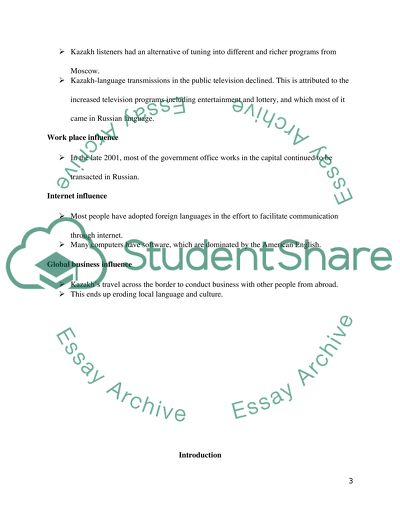Cite this document
(“The influence of Globalization on Kazakh language in Kazakhstan Essay”, n.d.)
Retrieved de https://studentshare.org/english/1599974-the-influence-of-globalization-on-kazakh-language-in-kazakhstan
Retrieved de https://studentshare.org/english/1599974-the-influence-of-globalization-on-kazakh-language-in-kazakhstan
(The Influence of Globalization on Kazakh Language in Kazakhstan Essay)
https://studentshare.org/english/1599974-the-influence-of-globalization-on-kazakh-language-in-kazakhstan.
https://studentshare.org/english/1599974-the-influence-of-globalization-on-kazakh-language-in-kazakhstan.
“The Influence of Globalization on Kazakh Language in Kazakhstan Essay”, n.d. https://studentshare.org/english/1599974-the-influence-of-globalization-on-kazakh-language-in-kazakhstan.


